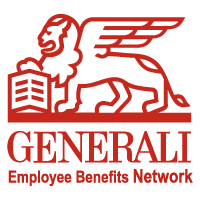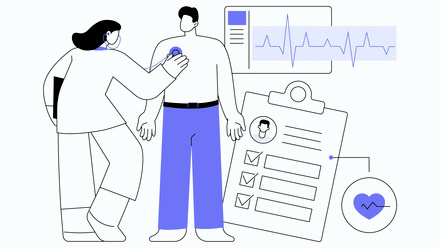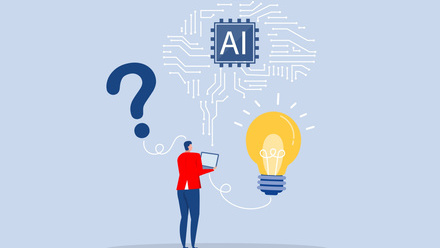Three ways AI will revolutionise reward and benefits practice

1. Greater personalisation
AI has the potential to improve benefit design, offering a far more personalised service that enhances the overall employee experience.
“AI will allow us to be a lot more personalised so that we know what benefit is needed and when it’s needed,” explains Dr Umang Patel, clinical director at Babylon. “It [AI] can then help us communicate the benefit and deliver it to the end user in a meaningful way.”
AI will also personalise the entire employee lifecycle, helping improve recruitment and onboarding processes, increase productivity and ensure better retention rates.
“From self-service transactions, talent acquisition and payroll, to reporting and access to policies and procedures, AI technology can revolutionise the HR industry and provide a far more personalised experience. It has the potential to raise employee productivity and boost performance,” says Christina Katsantoni, product marketing specialist at LifeWorks.
2. Less administration
AI will automate administrative and repetitive tasks, improving productivity and providing better accuracy and stability to everyday processes through quality data and faster services. Katsantoni believes this will result in improvements for both providers and employees.
“The ability to automate these types of low-value tasks will improve capabilities, time and budget,” she says. “The efficient automation of many back-office functions will also make HR transactions and service delivery more reliable, transforming the employee experience from end-to-end.”
3. Better communication
Although AI’s use is still minimal in employee benefits, it’s already making a positive difference. Katsantoni explains: “Conversational AI for HR operations, like chatbots, can help both managers and employees by providing authorised information with which they can access and perform certain transactions.”
As well as being used in benefits chatbots to communicate the most relevant content for individual employees, AI is enhancing the way in which decisions are made and advice is delivered. This capability will continue to improve and will lead to better recommendations and greater security for updating personal and sensitive information.
AI will also improve organisational culture because it provides a better means of communication.
“It’s not enough to send another email – people are swamped,” says Patel. “AI can help communicate a message so that it’s really felt and understood. It can connect companies with employees and help drive a better culture and improved outcomes.”
Be prepared
It would be wise for HR professionals to prepare now to get ahead of the AI wave. One of the ways to do this is by establishing policies that encourage fairness but do not limit innovation. This will help dispel any concerns about data use or fears that people may lose their jobs due to the new technology.
“There will be understandable scepticism at the beginning and concerns about data privacy,” Patel says. “The best approach is to be transparent and have a framework in your head about how you’re going to approach AI.”
Katsantoni believes training is key to a successful transition. “Proactively identify the jobs that are most likely to be automated,” she advises. “This way, you can make sure that people whose livelihoods are at risk from AI-powered automation are appropriately retrained. Investing in training is an important driver of organisational success.”
Don’t expect too much too soon, says Patel. “Like any new technology, it’s best to be patient when it’s first implemented and make sure you don’t task it too much to start with,” he explains. “At Babylon, AI isn’t there to replace the doctor. It’s there to augment and support existing processes and services.”
The potential of AI to enhance the employee experience, minimise administration and reduce organisational costs remains untapped. HR professionals should start preparing to use this exciting new technology now to create the best possible outcomes for their business and employees.
The author is Tracey Ward, head of business development and marketing, Generali UK Employee Benefits
This article is provided by Generali UK Employee Benefits
Supplied by REBA Associate Member, Generali Employee Benefits Network
Generali Employee Benefits' solutions are to protect and enhance the wellbeing of their workforce.







